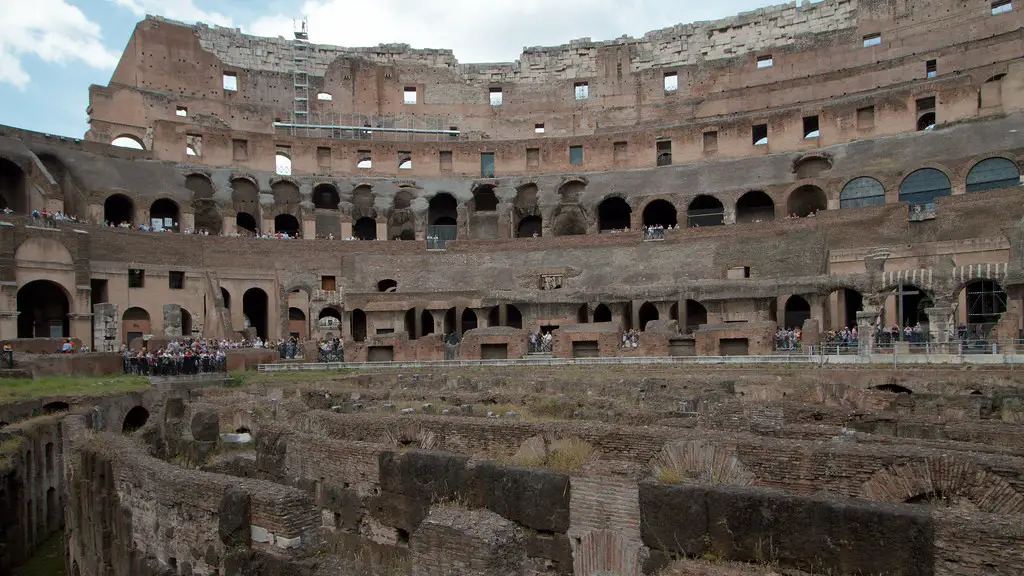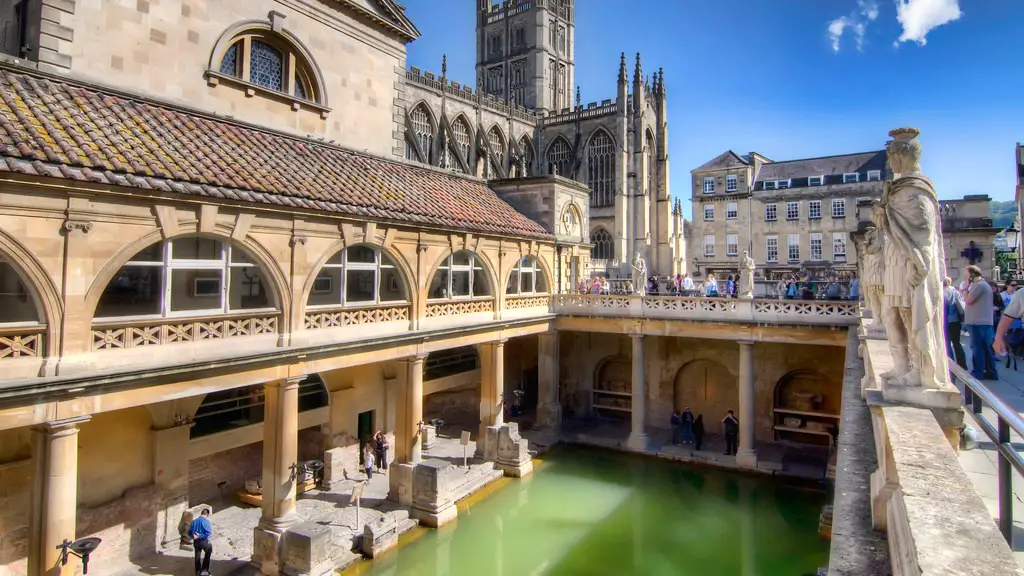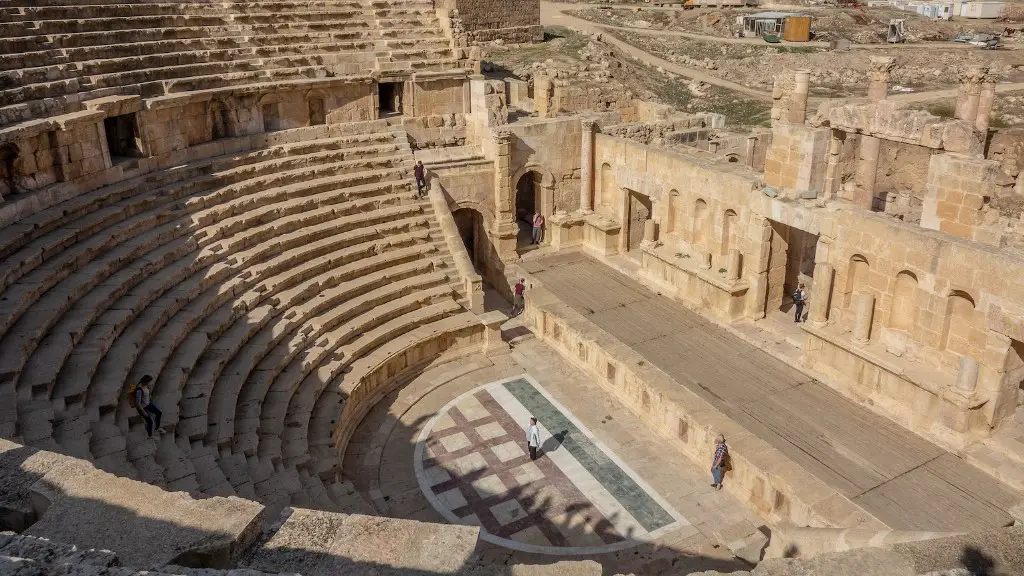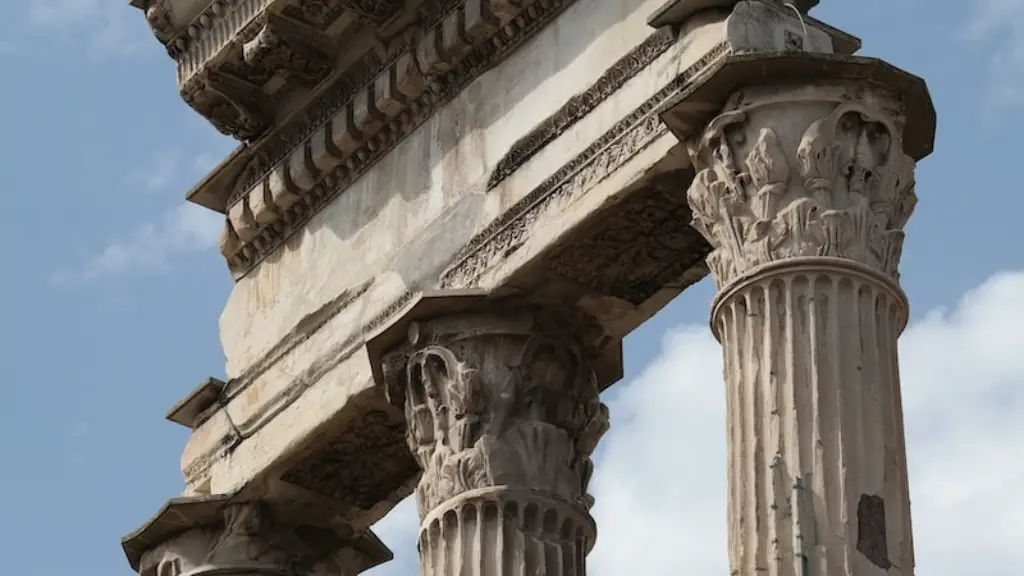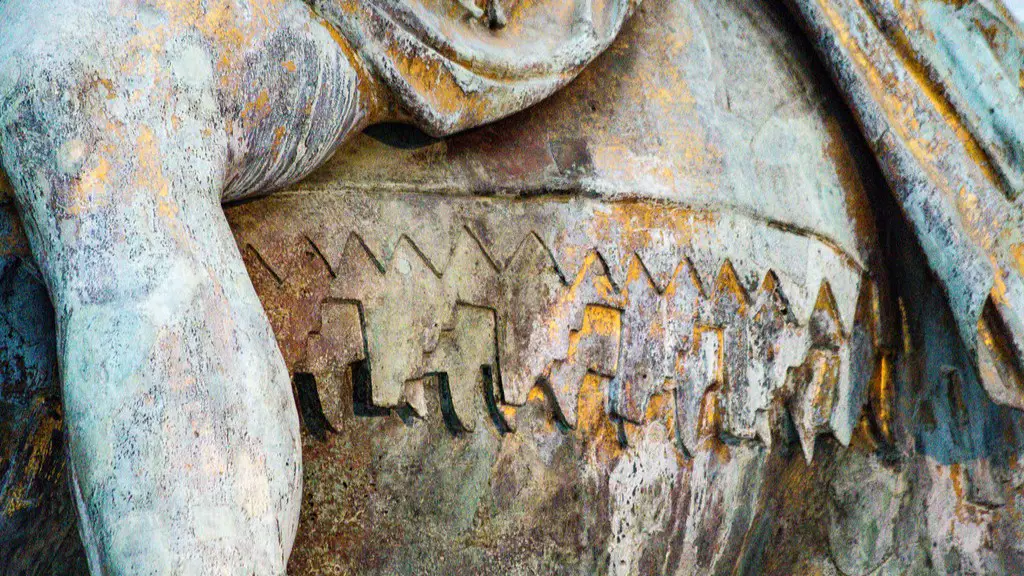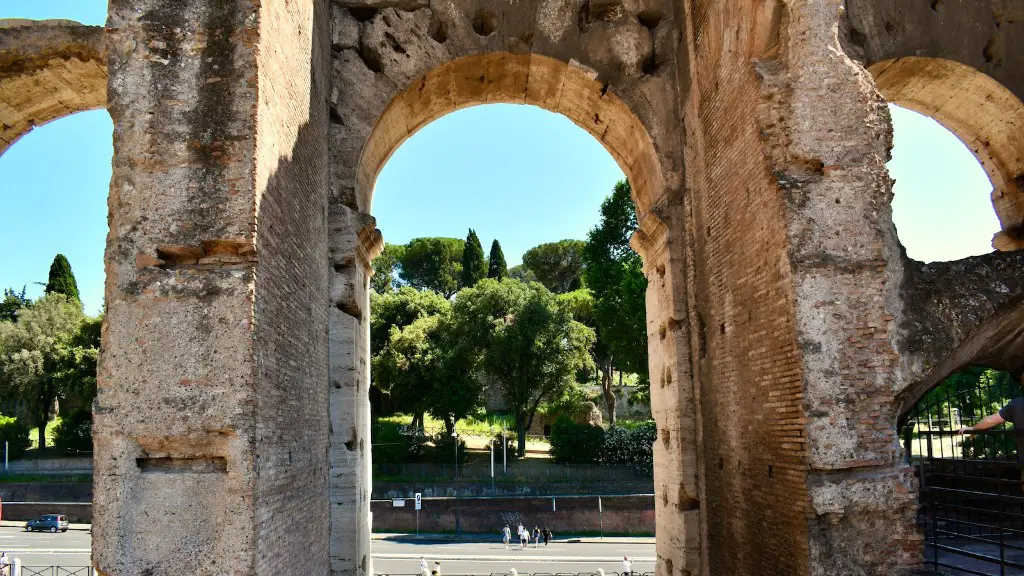Ancient Rome was known for its affluent and ostentatious lifestyle. Even though the vast majority of people were poor and subsided on basic grains and food, the elite of Rome flaunted their wealth and status. It is important to understand why this was, and how the wealthy elites were so heavily empowered within the social class structure of the late Roman Republic.
It was easy to become part of Roman aristocracy. Many of Rome’s wealthy and elite were from the few wealthy families that had been the ruling class since antiquity. These families had traditionally held government offices and owned most of the land and controlled the majority of the wealth.
The wealthy elites of ancient Rome enjoyed luxurious lifestyles that ranged from sumptuous feasts to expensive baths. They lived in sprawling villas and entertained lavishly. They would hold extravagant parties and often dress elegantly. The wealthy would also indulge in sports such as hunting and chariot races. They also enjoyed spectacles such as gladiator fights and public executions.
The wealthy elites were politically powerful and acted as patrons and protectors of the people. They had the power to grant favors and employed people to do their bidding. They could also act as mediators between the people and their government. This power allowed them to control a large portion of the ancient Roman economy.
The wealthy elites also had significant influence over the culture and art of ancient Rome. They were patrons of art and literature and supported some of the most renowned artists and writers of the time. They were also major benefactors of the renowned Roman baths, engineering projects, theaters, and other monuments that are still seen today.
The wealthy elites were also avid collectors of art, jewelry and coins, and their off-the-chart buying habits forced prices and demand for goods to rise. This, in turn, affected not just the elites, but all of Roman society.
Interestingly, the wealthy elites also had a hand in setting the laws and regulations of ancient Rome. They had the power to dictate who was eligible to vote and who could hold a public office. This allowed them to maintain their powerful presence in the Roman Republic.
Politics
The wealthy elites had a dominant presence in the politics of ancient Rome. They held public offices and had major influence over the decisions made by the Roman Republic. They had the power to control who was eligible to vote, who received public office and how laws were put into effect.
Most of Rome’s law codes were written to benefit the wealthy elites. They were primarily focused on protecting the Roman aristocracy from social and economic instability. This allowed the wealthy elites to maintain their privileged position in the Roman Republic.
The wealthy elites also had a significant influence over military decisions. They held high military positions and had a great deal of say in matters concerning defense. This enabled them to control Rome’s national security decisions and to maintain their power within the Roman Republic.
The wealthy elites also had a hand in religion. They had the power to dictate which gods were acceptable within Rome and had a great deal of influence over the cults within Rome. This allowed them to control the religious beliefs of the Roman people and to ensure that their desires were kept in top priority.
Social Interaction
The wealthy elites of ancient Rome were considered to be above the average citizen. They were often accompanied by private bodyguards and were rarely seen in public without them. This was due to the fact that the average citizen was seen as untrustworthy and untrusting of the wealthy.
The wealthy elites also had their own clubs and private gatherings. They had the power to decide who was welcome within them and who was not. This allowed them to control who was allowed into their social circles and to maintain the perception that they were above the average citizen.
The wealthy elites of Rome enjoyed much more freedom than the average citizen. They had access to public baths and could enjoy the finer things in life. This was due to their privileged position within the Roman Republic and their political and military power.
The wealthy also had great influence over the public spectacle by proving gladiator battles and public executions. These were meant to entertain the wealthy elites and were seen as a form of entertainment. This allowed those at the top of Roman society to maintain their powerful and privileged position.
Economic Power
Much of Rome’s economic power rested in the hands of the wealthy elites. They owned most of the land and resources and were the primary source of wealth for the Roman Republic. They were also responsible for the majority of taxes and many of the laws surrounding economic matters.
The wealthy had the power to control the price of goods and services. This allowed them to maintain their wealth and power and control the economic destiny of the Roman Republic. The wealthy would also often use their wealth to control their political opponents and maintain their powerful presence.
The wealthy elites also had great influence over Rome’s banking system. They were often involved in setting the interest rates and in determining where and how the money was loaned out. This allowed them to maintain their wealth and power and to keep the people in a state of dependency.
The wealthy elites also had control over Rome’s trade and foreign affairs. They would decide who was allowed to enter the city and trade and would often impose tariffs and various taxes. This enabled them to control the flow of goods and resources into Rome and maintain their powerful economic position.
Legacy
The legacy of the wealthy elites of Rome can still be seen in modern society. They were responsible for the changes in laws, politics, religion and culture that still influence our society today. They were also responsible for the building of beautiful structures and monuments that are still admired today.
The legacy of the wealthy elites in Rome is also evident in the ways in which wealth and power still allow those at the top of society the ability to dictate terms and control their environments. They were able to use their wealth and power to shape the Roman Republic and modern society in ways that still have a major effect today.
Moral Ambiguity
The wealthy elites of Rome were not saints, they had many flaws. They were able to use their wealth and power to maintain their privileged positions and to manipulate the laws and politics to benefit themselves and their families. This often allowed them to gain an unfair advantage over those who were not from wealthy families.
The wealthy elites in Rome also had a predisposition to excess. They indulged in luxury and frivolity at the expense of the average Roman citizen. They engaged in self-indulgent and ostentatious behavior which often highlighted the social disparities between the wealthy and the poor.
The wealthy elites in Rome also had a hand in the suppression of the lower classes. They were able to dictate terms and manipulate the laws in order to maintain their power over the lower classes and keep them in a state of dependence. This often perpetuated the social stratification in Rome.
The wealth and power of the wealthy elites in Rome has long lasting effects on our society that can be seen in the present day. The moral ambiguities and abuses of power that they had in ancient Rome are still present in our society today.
Conclusion
The wealthy elites of ancient Rome were powerful and influential figures within the Roman Republic. They had the power to dictate terms, manipulate the law and control many aspects of the Roman Republic. Their legacy can still be seen in modern society, as their abuses of power and self-indulgent lifestyles set the precedent for how wealth and power should be handled.
